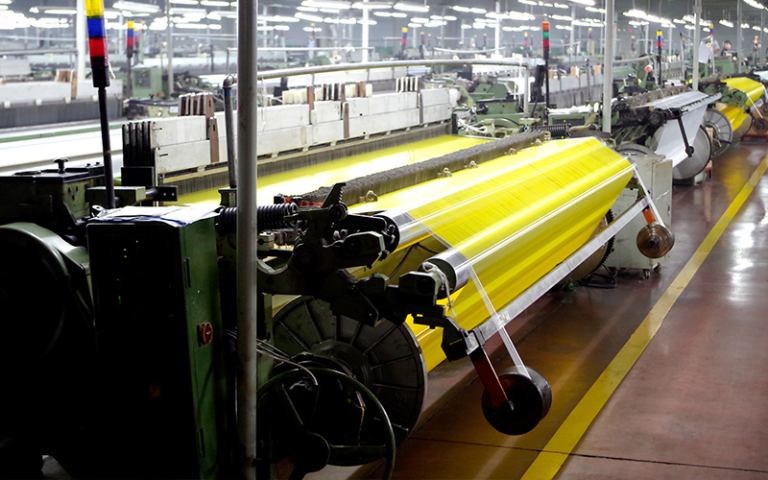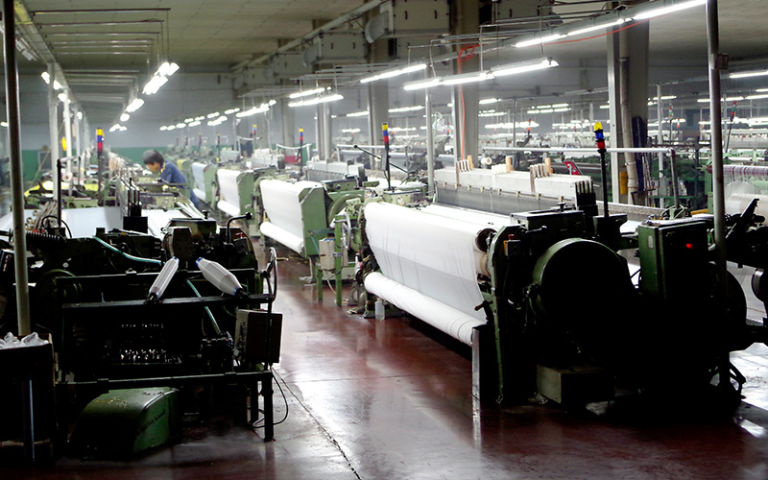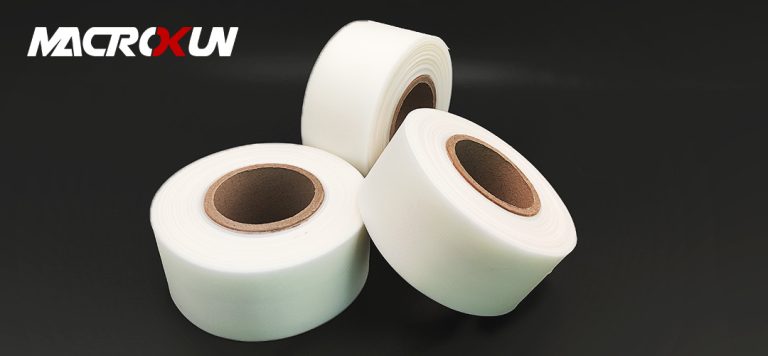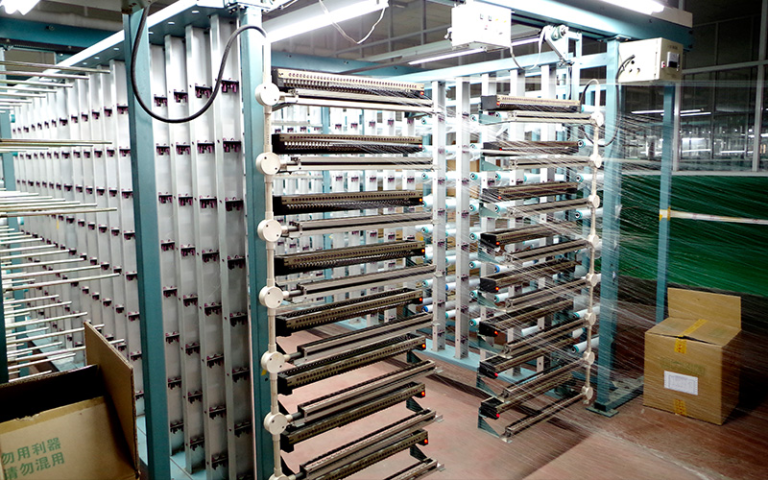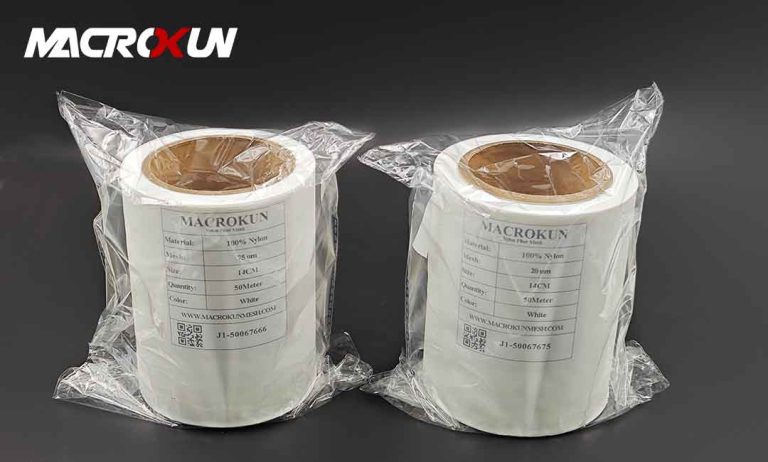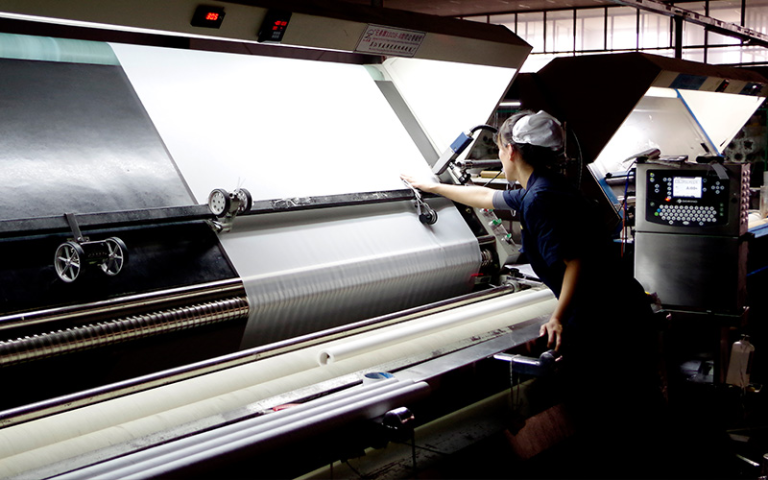Table of Contents
Benefits of Using 200 micron nylon mesh for filtration
The use of 200 micron nylon mesh for filtration has gained significant attention across various industries due to its remarkable durability and precision. One of the primary benefits of this mesh is its ability to provide a reliable barrier against particles while allowing for optimal fluid flow. This characteristic is particularly advantageous in applications where maintaining the integrity of the filtered substance is crucial. For instance, in the food and beverage industry, the use of 200 micron nylon mesh ensures that contaminants are effectively removed without compromising the quality of the product.
Moreover, the durability of nylon mesh is another compelling reason for its widespread adoption. Unlike other materials that may degrade or lose their structural integrity over time, nylon exhibits exceptional resistance to wear and tear. This resilience is particularly important in environments where the mesh is subjected to continuous use or exposure to harsh chemicals. As a result, businesses can benefit from reduced replacement costs and less downtime, ultimately leading to increased operational efficiency.
In addition to its durability, the precision of 200 micron nylon mesh plays a critical role in achieving consistent filtration results. The uniformity of the mesh openings allows for a controlled filtration process, ensuring that particles of a specific size are effectively captured. This level of precision is essential in industries such as pharmaceuticals, where even the smallest contaminants can compromise product safety and efficacy. By utilizing 200 micron nylon mesh, manufacturers can adhere to stringent quality control standards, thereby enhancing consumer trust and satisfaction.
| Class | Mesh Size(/cm) | Mesh Size(/inch) | Thread Dia(um) | Mesh Opening(um) | Thickness(um) | Net Weight(g/m2) |
| NL4/1950 | 4 | 10 | 550 | 1950 | 1100 | 307 |
| NL5/1500 | 5 | 13 | 500 | 1500 | 1000 | 318 |
| NL6/1267 | 6 | 15 | 400 | 1267 | 800 | 244 |
| NL7/1079 | 7 | 18 | 350 | 1079 | 700 | 218 |
| NL8/900 | 8 | 20 | 350 | 900 | 700 | 249 |
| NL9/861 | 9 | 23 | 250 | 861 | 500 | 143 |
| NL9/811 | 9 | 23 | 300 | 811 | 600 | 206 |
| NL10/750 | 10 | 25 | 250 | 750 | 500 | 159 |
| NL10/700 | 10 | 25 | 300 | 700 | 600 | 229 |
| NL12/583 | 12 | 30 | 250 | 583 | 500 | 191 |
| NL12/533 | 12 | 30 | 300 | 533 | 600 | 274 |
| NL14/514 | 14 | 36 | 200 | 514 | 340 | 142 |
| NL16/425 | 16 | 40 | 200 | 425 | 340 | 160 |
| NL20/350 | 20 | 50 | 150 | 350 | 255 | 113 |
| NL20/300 | 20 | 50 | 200 | 300 | 340 | 200 |
| NL24/267 | 24 | 60 | 150 | 267 | 255 | 135 |
| NL28/237 | 28 | 70 | 120 | 237 | 204 | 101 |
| NL30/213 | 30 | 76 | 120 | 213 | 204 | 110 |
| NL32/213 | 32 | 80 | 100 | 213 | 170 | 80 |
| NL36/178 | 36 | 90 | 100 | 178 | 170 | 90 |
| NL40/150 | 40 | 100 | 100 | 150 | 170 | 100 |
| NL43/153 | 43 | 110 | 80 | 153 | 136 | 70 |
| NL48/128 | 48 | 120 | 80 | 128 | 136 | 77 |
| NL56/119 | 56 | 140 | 60 | 119 | 102 | 50 |
| NL64/96 | 64 | 160 | 60 | 96 | 102 | 58 |
| NL72/89 | 72 | 180 | 50 | 89 | 85 | 45 |
| NL80/75 | 80 | 200 | 50 | 75 | 85 | 50 |
| NL100/57 | 100 | 250 | 43 | 57 | 73 | 46 |
| NL110/48 | 110 | 280 | 43 | 48 | 73 | 52 |
| NL120/48 | 120 | 300 | 35 | 48 | 60 | 37 |
| NL120/40 | 120 | 300 | 43 | 40 | 73 | 55 |
| NL130/42 | 130 | 330 | 35 | 42 | 60 | 40 |
| NL130/34 | 130 | 330 | 43 | 34 | 73 | 61 |
| NL140/36 | 140 | 350 | 35 | 36 | 60 | 43 |
| NL157/25 | 157 | 400 | 43 | 25 | 73 | 74 |
| NL180/20 | 180 | 450 | 39 | 20 | 66 | 68 |
| NL200/15 | 200 | 500 | 39 | 15 | 66 | 76 |
| NL220/10 | 220 | 550 | 39 | 10 | 66 | 84 |
| NL240/5 | 240 | 600 | 39 | 5 | 66 | 91 |
Furthermore, the versatility of nylon mesh makes it suitable for a wide range of applications. Whether used in liquid filtration, air filtration, or even as a component in various industrial processes, the adaptability of 200 micron nylon mesh allows it to meet diverse filtration needs. This versatility is particularly beneficial for businesses that require a single solution for multiple filtration challenges, as it simplifies inventory management and reduces the need for multiple types of filtration media.
Another significant advantage of using 200 micron nylon mesh is its ease of cleaning and maintenance. Unlike some filtration materials that may become clogged or require extensive cleaning procedures, nylon mesh can be easily rinsed and reused. This not only contributes to cost savings but also aligns with environmentally friendly practices by reducing waste. In an era where sustainability is increasingly prioritized, the ability to reuse filtration media without compromising performance is a valuable asset.
Additionally, the lightweight nature of nylon mesh facilitates easy handling and installation. This characteristic is particularly beneficial in applications where the mesh needs to be integrated into existing systems or equipment. The ease of installation can lead to quicker project turnaround times, allowing businesses to respond more rapidly to market demands.
In conclusion, the benefits of using 200 micron nylon mesh for filtration are manifold. Its durability ensures long-lasting performance, while its precision allows for effective particle removal. The versatility of the material caters to a wide array of applications, and its ease of maintenance promotes sustainability. As industries continue to seek efficient and reliable filtration solutions, 200 micron nylon mesh stands out as a superior choice, combining functionality with practicality to meet the evolving needs of modern filtration processes.
Applications of High-Quality Nylon Mesh in Various Industries
High-quality 200 micron nylon mesh has emerged as a vital component across various industries, owing to its exceptional durability and precise filtration capabilities. This versatile material is engineered to meet the rigorous demands of diverse applications, making it an indispensable asset in sectors such as food and beverage, pharmaceuticals, water treatment, and industrial manufacturing. The unique properties of nylon mesh, including its resistance to chemicals, high tensile strength, and ability to withstand extreme temperatures, contribute significantly to its widespread adoption.

In the food and beverage industry, nylon mesh plays a crucial role in ensuring product quality and safety. It is commonly used in processes such as brewing, where it serves as a filter for hops and other solid materials, allowing for the extraction of flavors while preventing unwanted particles from contaminating the final product. Additionally, in the production of juices and dairy products, nylon mesh is employed to separate pulp and solids, ensuring a smooth and consistent texture. The ability of 200 micron nylon mesh to maintain its integrity under high-pressure conditions further enhances its effectiveness in these applications, making it a preferred choice for manufacturers committed to delivering high-quality products.
Transitioning to the pharmaceutical sector, the importance of precise filtration cannot be overstated. High-quality nylon mesh is utilized in the production of various medications and vaccines, where it is essential to eliminate contaminants and ensure the purity of active ingredients. The 200 micron specification allows for the effective removal of particulates while maintaining the necessary flow rates, which is critical in large-scale production environments. Moreover, the mesh’s compatibility with sterilization processes ensures that it can be safely used in cleanroom settings, thereby adhering to stringent regulatory standards.
In the realm of water treatment, nylon mesh serves as a reliable filtration medium for both municipal and industrial applications. Its ability to filter out sediments, algae, and other impurities makes it an ideal choice for maintaining water quality. The durability of 200 micron nylon mesh ensures that it can withstand the harsh conditions often encountered in water treatment facilities, including exposure to corrosive chemicals and fluctuating temperatures. As water quality regulations become increasingly stringent, the demand for effective filtration solutions continues to rise, further solidifying the role of nylon mesh in this critical industry.
Furthermore, in industrial manufacturing, nylon mesh is employed in various processes, including sieving, screening, and separation. Its high tensile strength allows it to endure the mechanical stresses associated with these applications, while its precise mesh size ensures consistent results. Industries such as mining and construction utilize nylon mesh for the separation of materials, where it effectively filters out unwanted particles, thereby enhancing the efficiency of production processes. The lightweight nature of nylon mesh also contributes to its ease of handling and installation, making it a practical choice for manufacturers seeking to optimize their operations.
In conclusion, the applications of high-quality 200 micron nylon mesh span a wide array of industries, each benefiting from its durability and precise filtration capabilities. From ensuring the safety and quality of food and beverages to maintaining the integrity of pharmaceuticals and enhancing water treatment processes, nylon mesh has proven to be an invaluable resource. As industries continue to evolve and face new challenges, the demand for reliable filtration solutions like nylon mesh is expected to grow, underscoring its significance in modern manufacturing and production practices.
Comparing Nylon Mesh to Other Filtration Materials
When it comes to filtration materials, nylon mesh stands out for its unique combination of durability and precision, particularly in the 200-micron variety. This specific mesh size is often compared to other filtration materials, such as polyester, stainless steel, and polypropylene, each of which has its own set of advantages and disadvantages. Understanding these differences is crucial for selecting the most appropriate material for a given application.
Nylon mesh, especially at 200 microns, offers a remarkable balance between strength and flexibility. Its ability to withstand high temperatures and various chemical environments makes it a preferred choice in industries ranging from food processing to pharmaceuticals. In contrast, polyester mesh, while also durable, tends to have a lower resistance to heat and certain chemicals. This limitation can restrict its use in applications where exposure to extreme conditions is a concern. Therefore, for tasks requiring high-temperature filtration or exposure to aggressive solvents, nylon mesh is often the superior option.
Moreover, the precision of nylon mesh filtration is noteworthy. The 200-micron size allows for the effective removal of particulates while maintaining a high flow rate, which is essential in processes where efficiency is paramount. When compared to stainless steel mesh, which is often used for its robustness, nylon mesh can provide a finer filtration without the added weight and potential for corrosion that stainless steel presents. While stainless steel is excellent for applications requiring extreme durability, its rigidity can lead to challenges in certain environments, particularly where flexibility is needed.
In addition to these considerations, polypropylene mesh is another alternative that merits discussion. Polypropylene is known for its chemical resistance and is often used in applications involving corrosive substances. However, it generally lacks the mechanical strength and temperature resistance that nylon mesh offers. This difference becomes particularly significant in applications where both chemical exposure and mechanical stress are present. In such cases, the nylon mesh not only outperforms polypropylene but also provides a longer service life, reducing the need for frequent replacements.
Furthermore, the ease of cleaning and maintenance is another area where nylon mesh excels. Its smooth surface allows for straightforward cleaning processes, which is particularly beneficial in industries that require stringent hygiene standards. In contrast, other materials may accumulate residues more easily, complicating maintenance efforts. This ease of cleaning contributes to the overall efficiency of operations, as it minimizes downtime and ensures consistent performance.
In summary, while there are various filtration materials available, the high-quality 200-micron nylon mesh distinguishes itself through its durability, precision, and versatility. Its ability to withstand harsh conditions while providing effective filtration makes it an ideal choice for a wide range of applications. When compared to polyester, stainless steel, and polypropylene, nylon mesh consistently demonstrates superior performance in critical areas such as temperature resistance, flexibility, and ease of maintenance. As industries continue to evolve and demand more from their filtration solutions, nylon mesh remains a reliable and effective option that meets the rigorous standards of modern applications. Ultimately, the choice of filtration material should be guided by the specific requirements of the application, but for many scenarios, the advantages of high-quality nylon mesh are undeniable.
Maintenance Tips for Durable Nylon Mesh Filtration Systems
Nylon mesh filtration systems are essential tools in various industries, including food and beverage, pharmaceuticals, and water treatment. These systems rely on high-quality nylon mesh to effectively filter out impurities and contaminants, ensuring the purity and quality of the final product. One of the key factors that contribute to the efficiency and longevity of nylon mesh filtration systems is the quality of the mesh itself.
When it comes to nylon mesh, the micron size plays a crucial role in determining the filtration efficiency and precision of the system. A micron is a unit of measurement that is equal to one-millionth of a meter, and it is used to measure the size of particles that can pass through the mesh. A 200-micron nylon mesh is considered to be a medium-sized mesh that is suitable for a wide range of applications. It offers a good balance between filtration efficiency and flow rate, making it ideal for filtering out medium-sized particles while allowing smaller particles to pass through.
One of the key advantages of using a 200-micron nylon mesh is its durability. Nylon is a strong and resilient material that can withstand high temperatures, chemicals, and mechanical stress. This makes it an ideal choice for filtration systems that are exposed to harsh operating conditions. A high-quality 200-micron nylon mesh is designed to resist wear and tear, ensuring long-lasting performance and reliability.
To maintain the durability and efficiency of a 200-micron nylon mesh filtration system, proper care and maintenance are essential. Regular cleaning and inspection of the mesh are necessary to prevent clogging and ensure optimal filtration performance. Here are some maintenance tips to help you keep your nylon mesh filtration system in top condition:
1. Regularly inspect the mesh for signs of wear and tear, such as holes, tears, or fraying. Replace any damaged mesh immediately to prevent contaminants from passing through.

2. Clean the mesh regularly to remove accumulated debris, dirt, and contaminants. Use a mild detergent and warm water to gently scrub the mesh, then rinse thoroughly with clean water.
3. Avoid using harsh chemicals or abrasive cleaners on the mesh, as they can damage the nylon material and reduce its filtration efficiency.
4. Check the seals and gaskets of the filtration system for leaks or damage. Replace any worn-out seals to prevent leaks and ensure a tight seal between the mesh and the filtration housing.
5. Monitor the flow rate and pressure of the filtration system regularly. A sudden drop in flow rate or an increase in pressure may indicate a clogged or damaged mesh that needs to be replaced.
By following these maintenance tips, you can ensure the durability and efficiency of your 200-micron nylon mesh filtration system. Proper care and maintenance will not only extend the lifespan of the mesh but also improve the quality and purity of the filtered product. Invest in high-quality nylon mesh and take care of it properly to enjoy reliable and precise filtration for years to come.
Innovations in Nylon Mesh Technology for Enhanced Filtration
The evolution of nylon mesh technology has significantly transformed the landscape of filtration systems, particularly with the introduction of high-quality 200 micron nylon mesh. This advancement not only enhances the efficiency of filtration processes but also addresses the growing demand for durable and precise filtration solutions across various industries. As industries increasingly prioritize quality and reliability, the innovations in nylon mesh technology have emerged as a pivotal factor in meeting these expectations.

One of the most notable innovations in nylon mesh technology is the development of advanced weaving techniques. These techniques allow for a more uniform distribution of fibers, resulting in a mesh that offers consistent pore sizes and improved structural integrity. The 200 micron specification is particularly advantageous, as it strikes a balance between allowing adequate flow rates while effectively capturing particles as small as 200 microns. This precision is essential in applications ranging from water treatment to food processing, where the removal of contaminants is critical to ensuring product safety and quality.
Moreover, the introduction of enhanced coating processes has further improved the performance of nylon mesh. These coatings can provide additional resistance to chemicals, UV light, and abrasion, thereby extending the lifespan of the mesh and maintaining its filtration efficiency over time. For instance, in environments where exposure to harsh chemicals is common, a coated nylon mesh can withstand degradation that would typically compromise uncoated alternatives. This durability not only reduces the frequency of replacements but also contributes to lower operational costs, making it an economically viable option for businesses.
In addition to durability, the advancements in nylon mesh technology have also focused on improving the ease of cleaning and maintenance. Traditional filtration systems often require extensive downtime for cleaning, which can disrupt operations and lead to increased costs. However, modern nylon mesh designs facilitate easier cleaning processes, allowing for quick removal of accumulated particles without damaging the mesh structure. This innovation is particularly beneficial in industries where hygiene is paramount, such as pharmaceuticals and food production, as it ensures that the filtration systems can be maintained without compromising safety standards.
Furthermore, the versatility of high-quality 200 micron nylon mesh has opened new avenues for its application. Beyond traditional uses, such as in water filtration and industrial processes, this technology is now being utilized in innovative ways, including in the production of composite materials and in the medical field for various applications. The adaptability of nylon mesh allows it to be tailored to specific needs, whether it be in terms of size, shape, or filtration requirements, thereby broadening its appeal across diverse sectors.
As industries continue to evolve and face new challenges, the innovations in nylon mesh technology will undoubtedly play a crucial role in shaping the future of filtration systems. The combination of durability, precision, and versatility offered by high-quality 200 micron nylon mesh positions it as a leading choice for businesses seeking reliable filtration solutions. In conclusion, the advancements in this technology not only enhance operational efficiency but also contribute to the overall sustainability of filtration practices, ensuring that industries can meet their filtration needs effectively while adhering to stringent quality standards. As we look ahead, it is clear that the ongoing development of nylon mesh technology will remain integral to the pursuit of excellence in filtration.

